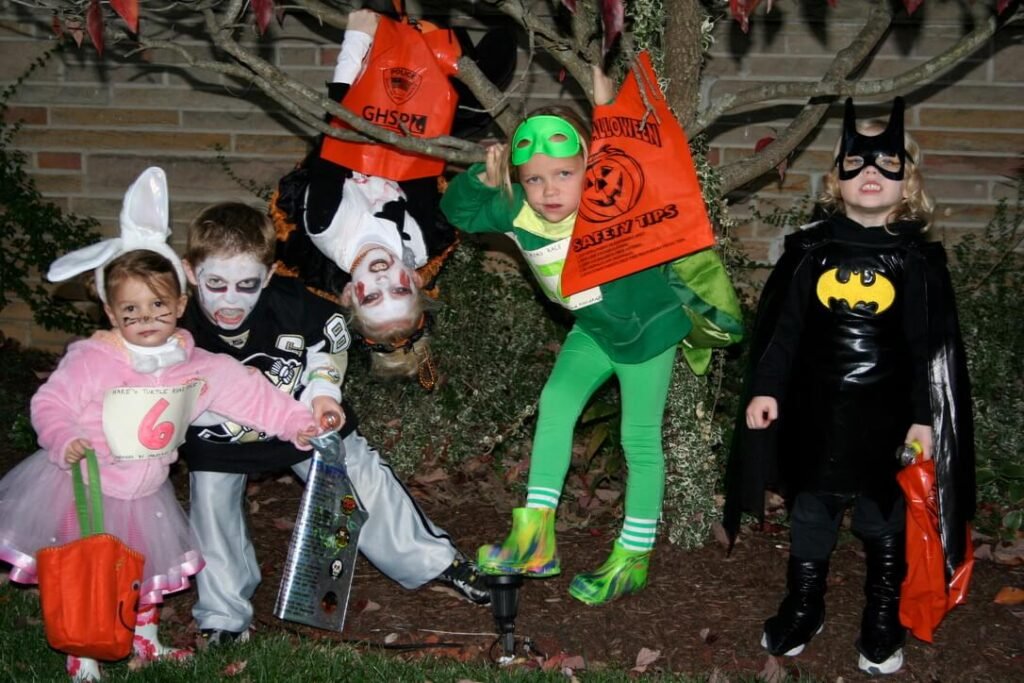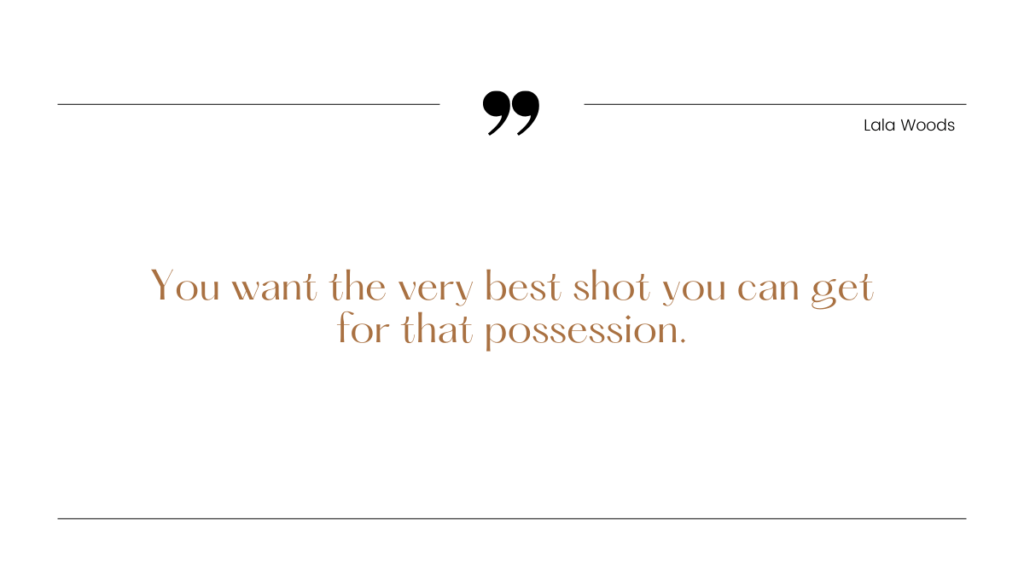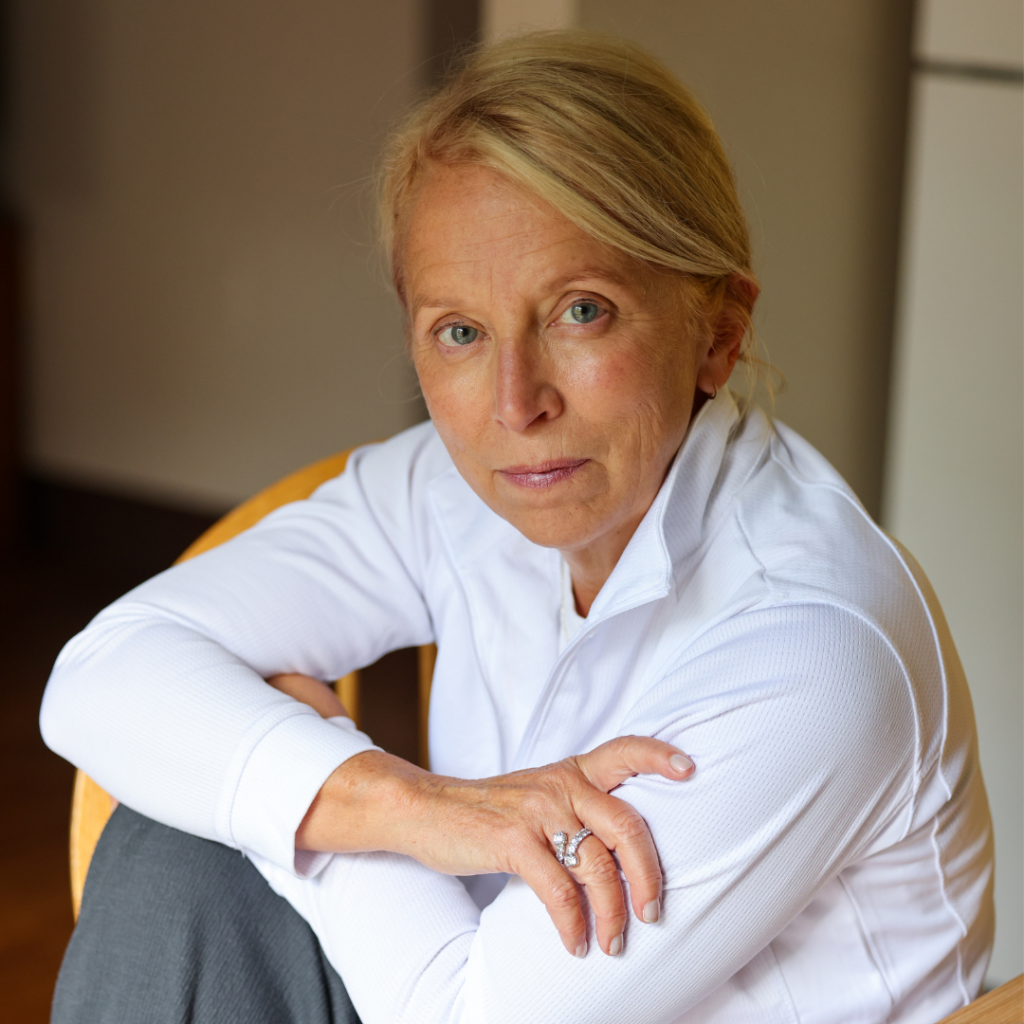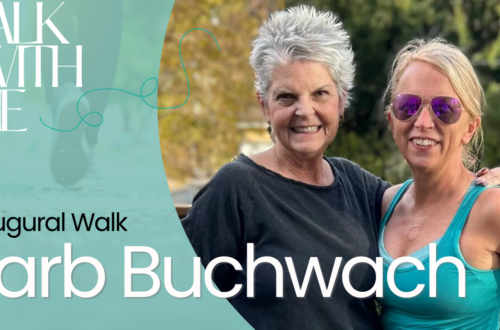The moment is etched in her mother’s memory with painful clarity – the squeak of sneakers on polished hardwood, the thud of two defenders and Lala hitting the floor and the collective gasp that seemed to pull the oxygen from the gymnasium.
Cari: Well…. I remember she had been playing really well that day…and was genuinely having fun. The team we were playing was very aggressive… Lala had the ball and decided to drive it… two defenders ran up to stop her and all three kids hit the floor… the other girls jumped right up and La didn’t. It didn’t take a background in PT to know it was not good. She had never waved me over in all the years she’s played.
There was collective hope that it wasn’t an ACL tear. It was. It was a full ACL tear. She had gone down in the fourth quarter of a summer rec league game. It was a routine play at the top of the key, a drive she’d executed thousands of times before. But basketball, like life, sometimes pivots without warning.
This walk is not about the injury that sidelined Ashlyne “Lala” Woods for her senior year before heading to the University of Maine. This walk is about the way she is reacting to that pivot…it is not about the injury, it is about her unassuming courage and her penchant for optimism.

At 18, Lala moves with a quiet confidence and grace. If you had asked me 13 years ago, I would never have thought I would describe the vivacious child who found mischief easily alongside Ella in such a way, but it certainly rings true today. As the youngest of three outstanding athletes, Lala doesn’t say much. She doesn’t have to. She observes… and she performs. No, she outpaces others.

Lala: I definitely started basketball because my sister played. If she was a cheerleader, then I would probably be a cheerleader. So I think just watching her do it made me want to do it more. I don’t know. Maybe I wanted to be better than her.

To achieve that sibling rivalry, she works hard everyday, and always has, but by being the youngest, she has also put in years watching and learning the game. When she plays, she is fun to watch. She moves down the court with a measured pace. Each dribble is purposeful as she scans the court with a brewing intensity. You can see a gleam in her eye that something is about to unfold. Her confidence isn’t born from arrogance, but from countless hours in empty gyms, practicing a pass or a shot when no one was watching. Isn’t that what they say? …character is defined by the decisions you make when no one is watching.
Imagine then, the heartbreaking transformation of this active starter into a bench strategist – one of the most profound challenges an athlete can face. Unable to play, Lala has become an unofficial assistant coach, seeing the game with a precision she’d never had the perspective or the time for as a player.
Liz: You’re used to being the one that can make a difference. What’s it like to have to sit on the sidelines?
Lala: It’s not something I wish on anyone else, that’s for sure. But I feel like I have to look at it differently. Obviously, I am sad and I’m mad that I can’t be out there to help my team and my coaches and everyone who looks up to me and wants to come to the games. I can’t give them the entertainment they expect. But I think I’m just trying to look at it as I’m learning the game from a different perspective by watching every play, watching what my team could do better… picking up cues and learning from just watching. I think it’ll help me in the end when I’m back on the court.
I’ll tell coach “Hey, I think we need to guard this girl more. She’s on the back door every time we need to sit on that.” I’m picking up things that I probably wouldn’t normally pick up if I was actually in the moment playing.
That ability to reframe her thinking – the realization that there is still a lot to learn even though she is a Division 1 recruit – that defines Lala’s character. Choosing a college is a pivotal moment in Lala’s narrative, akin to any of us selecting a path in life. Her decision to join the University of Maine basketball program was not just about the sport, but about the connections and the sense of belonging she felt with the team and coaches. The emphasis on relationships over basketball prowess highlights the multidimensional nature of her character and sets a meaningful example for others to follow. She knows what is important to her – the best shot – and what she values – relationships and trust. We should all be so wise.
Lala: Every team, every coach has a different way they like to run things. Maine really runs the ball to get the best shot. And that’s what you want in basketball. You want the best shot. You don’t want just a quick shot. You don’t want a rush shot. You want the very best shot you can get for that possession.

I love that she added “for that possession.” It allows some grace. It doesn’t have to be the perfect shot – that’s unattainable every time. Just the best shot for that possession… it might not be as good as the last one or as the next one will be… but the best one at the moment. It also implies there will be other chances – the miss doesn’t define you any more than the swoosh of the ball finding the net.
Liz: So choosing what college to go play division one sports has a lot of the same basic requirements as choosing a career or even identifying leadership skills. You were basically choosing what leader you wanted to follow. How did you make the choice?
Lala: The first time I visited, I was nervous, not as talkative, and I just let them do the talking. As I kept going back for more visits, I talked more, asked more questions. I liked the conversations with them. They’re supportive through what I’m going through right now as well. I liked the connection we had. We stayed in touch, and they, I don’t know, showed interest in me more than any other school that I was talking to did.
Liz: How did they show interest in you?
Lala: They told me that they don’t really recruit point guards. They are very picky about who they want and who’s going to fit in. I feel like if they’re telling me that, they must really like me then since they’re picky. I just want to be a part of that family of the girls and the coaches.
Liz: You realize you have not said much about basketball at all. No. It’s all been about the relationships and the trust and the validation.
As a high school senior, Lala can sense that relationships and trust matter. She doesn’t talk about their record, their basketball stats, or their offer. She talks about the people. This is a pattern I see recurring: seeing the value in a person and taking the time to express that. This walk is by no means a treatise on how to recruit athletes, but a coach could learn a thing or two by taking a walk with a standout recruit and listening to them. Let’s not kid ourselves though, Lala Woods also wants the thrill – the hype of the big game.
Lala: The girls get a really good crowd. I went to the American East championship game: Maine versus Vermont. It was a very hyped-up game, and there was not a seat empty. It was filled; it was loud. They had the band in there. They had the whole football team in there. They had a huge student section. Every play, it was so loud you couldn’t hear yourself. It was so loud. That was what set it for me. I was like, yeah, this is what I want to be. This is where I want to play.
Liz: You could feel it. Literally, you could feel the noise.
Lala: There’s so much love and support in that building that it was just like, Why wouldn’t I want to be here?
When talking to La, you get the impression that she made the right choice. This decision, she believes, will not only shape her as an athlete but also as a person, ready to learn and grow and ultimately to face the world equipped with the skills learned both on and off the court.
Since a coach can have such a profound influence on an athlete, I asked Lala who impacted her journey so far. I’ll be honest, I started to answer the question in my head before I had fully formed the words. In the hierarchy of influences in a young athlete’s life, we often look to the visible figures—coaches, parents, teammates, trainers, or physical therapists in La’s case. Her answer caught me off guard. The most transformative instruction had come not from anyone who understood basketball, but from a woman who understood something far more fundamental—the necessity of finding joy that transcends any circumstance.
Lala: Martha. You know Martha? She passed away. I think when I was little, I would always be with her. I’d always hang out with her. I’d hang out with her probably more than friends. She just always brought positivity. If she was having a bad day, you wouldn’t know it. She wouldn’t take it out on you or anything. She’s just a beautiful person in general. I just wish she could see me now, what I’m doing, which I know she’s looking down at me, but- It would be nice.
Liz: She’d be so proud. She wouldn’t miss a game.
Lala: Yeah. I’m just glad I got to have a time in my life to be with her. She always brought a positive, happiness side to me. If I could go back, I would go back for sure.
Liz: It’s interesting because you just said the opposite of what you said the first time. The first time, you said she was always positive and happy, but then you said she brought that out in you, too. I love the recognition that somebody who shows up positively, even though she was going through her own stuff… makes you feel better about yourself.
Lala: Yeah. We need more people like that. With her, I didn’t even think about basketball. It was everything else. One day we went and picked up all the litter and trash. We would always play American Girl dolls. She would make peanut butter and butter sandwiches, which that’s not healthy at all, I know. But they were so fire at the time. They were so good. And now that I look back, I’m like, wow, I have had too many of those probably. But, oh, well. She always made me happy. If I was having a bad day, I’d be fine after being with her.
Liz: La, I love that when I asked you about who’s had an influence on your life, your thought was Martha. That speaks volumes.
Lala: I do have a story. I think it was our second game this year of the season. We played in Columbus, and that’s not usually somewhere we go. We lost. After the game, we just sat out in front of the school waiting for the driver to pull the bus around and all of a sudden, I heard someone yelling my name. “Lala? Wheeling Park? Lala, is that you?” I was just like, Who is this? Looking around. I didn’t know who it was.
I see a car to my left, but I can’t see anything because the sun was directly in my eyes. I look over and all I see is the car and the person kept saying “Lala, Lala.” I walked that way, and all of a sudden, I see Martha’s face with the sun almost like a halo. All I see is her face because she has a twin sister. After I saw her face, I just stopped. She was talking to me. I couldn’t tell you to this day what she was telling me. I just kept staring at her. She kept talking to me. I did answer her, but I don’t even know what I was saying.
I remember and I just hugged her and I couldn’t stop hugging her. She was coming away from the hug to end it, but I just kept hugging her. So she obviously kept hugging me. When I went home, I told my mom the story, and she started crying. My dad even started crying because she just not only helped me, she helped everyone in our family, everyone. Anyone she was around, she would just help them. I don’t know. She was just such a great person.
Amidst this reflection, Martha’s spirit serves as a reminder of the impact individuals can have on our lives. She had always offered Lala a safe space to belong, a smile, a comfort meal. Lala yearned for one more moment in that love – maybe more than she realized until she had the chance to stand in Martha’s light one more time. She is following Martha’s example in her life. When Lala works with younger players, she teaches them life lessons, not just basketball skills. She instills confidence.
Lala: You got to think you’re making the shot… You got to almost be cocky that every shot is going in. That every time I shoot it, Oh, yeah, it’s going in. I’m not encouraging them to be cocky, but I’m just encouraging them to be mentally tough and mentally strong.
I just have to look at it like, I don’t know. I’m the Martha in someone else’s life.
Liz: To she who much is given, much is expected. And you have a Martha that you can hope to aspire to be.
Lala: And it’s funny because normally when someone asks me, who do you look up to in this? Who’s encouraged you? Who’s impacted you? I would probably say something alluding to basketball. But today, I said Martha, and I think that’s what I’ve been wanting to say. But I just always just say a basketball coach or a trainer, someone I’ve met through basketball. I don’t know.
Liz: I like an authentic answer.
Lala: Yeah. I want something because anyone would be thinking like, Oh, yeah, she’s probably going to say a basketball person. No. But I don’t know.
Liz: I get that. When you have somebody that special in your life, the impact is pretty far reaching.
Lala: Yes, definitely.
Those of us in education know the unrelenting power of “one caring adult,” the lifeline toward fulfilling one’s potential. Science confirms what our hearts have observed: when a child has that one person who consistently shows up, who creates a sacred space of belonging, something profound shifts at their core. Their nervous system settles. Their capacity for trust expands outward like ripples in still water. Their belief in their own potential inflates.
This isn’t about perfection. The adults who change children’s lives aren’t superheroes with unlimited resources or unshakable patience. They’re beautifully, authentically human – they get tired, they make mistakes, they sometimes struggle to find the right words. But they return. They apologize. They try again. They bring consistency, and in doing so teach the child resilience and acceptance.
When we talk about development – those clinical terms like “attachment” and “emotional regulation” – we’re really talking about the quiet miracles that unfold when someone holds space for a child’s becoming. When someone says, through both words and presence: I see you. I believe in you. You matter to me.
Martha offered Lala the unwavering belief that she is worthy of our attention, our effort, our heart. In that relationship lies the seed of everything Lala will become. As she looks toward the future, there’s a sense of anticipation and readiness to embrace whatever challenge or celebration comes next, both in basketball and in life.
Liz: I’m sorry that the path this year took you from a rec game that maybe you shouldn’t even have played in to losing out on your senior season. But I’m so proud of you for seeing that there’s a positive side to it.
Lala: Yeah. Well, I have my days, but everyone has those, but I think there’s more good than bad for right now.
Liz: I like the idea of your being hungry when you get to Maine.
Lala: Yeah. I look at things like everything’s meant to be almost. I feel like eventually I was bound to get here. Not to say I wanted this, but I feel like this is the perfect timing for this. I’ll be ready for what’s actually important…my dream. Right now, I feel like I’m missing out just because I know what I’m missing by watching from the sidelines. But when I get to Maine, I don’t know what I’d be missing otherwise. If that makes any sense.
Liz: It makes perfect sense.

I’m going to make it to a game, La. I’m going to lend my voice to that deafening Maine crowd. I don’t think they even know yet how lucky they are to have you take the floor in their jersey. Martha would be so damn proud.
Don’t lose your instincts – and I don’t mean the way you pull up for a shot – I mean the way you value people and relationships and optimism – and to keep looking for leaders who do the same. You have proven yourself to be one of those leaders, Lala Woods.






Liz this is a wonderful piece! I’m extremely moved by your writing and by strong, resilient Lala! Thank you for sharing this. Your mom and dad are shining down and incredibly proud of this new journey you have chosen! I